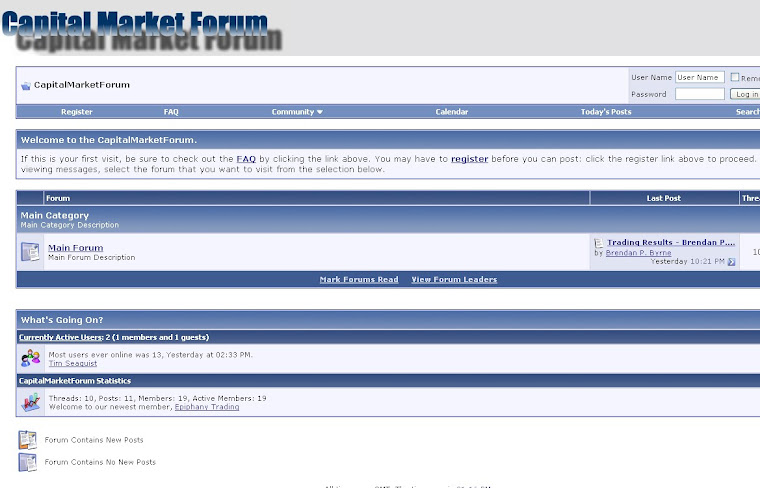Today is Election Day throughout the United States. The process- while a long, drawn-out and also nasty one at times also is incredible to me. The U.S. is quite unique in that it has had very little internal strife for the last 150 years so the fragile concept of casting a vote is actually a very powerful reminder of how lucky Americans are to have the rights we have. But it also raises a lot of stock market questions. The expectation is that by the end of the day today, the House will be under Republican rule, the Senate under Democratic rule (but very fractured), and the president of course a Democrat still. This raises a series of questions. First, do markets do better in midterm election years than in non-election years? According to a study by Brian Gendreau, a market strategist for Financial Network, the average gain of the Dow Jones Industrial Average over the 90 trading days following midterm elections was about 8.5% which is almost 5% higher than the Dow’s gains in non-election years. During that stretch, the only time that the party in power gained seats in both legislative bodies was in 2002- this was the only time since 1942 that the Dow fell after a mid-term election. Second, 90 days is good…but about longer? Well, the S&P 500 index has posted gains for every 200-day trading time stretch following mid-term Congressional elections since 1942 by an average of 18.3% according to the Leuthold Group. Third, how does the market typically do in the third year of a presidential cycle? According to the Stock Trader’s Almanac, records going back to 1833 indicate that the S&P 500 averages a 10.5% rally with the markets having risen in 33 of those years and declined in 11. Finally, how has the market performed under a Democratic President but a split Congress? Well, it’s only happened twice since 1900 (both times before World War II)and the market went down an average of 3.7%. here’s a full table with kudos to Standard & Poor’s for compiling the data:
So, what is the takeaway for day traders? The key thing is to monitor if anything unexpected happens tonight, i.e. Democrats or Republicans control both legislative bodies by the end of the evening. If the expected happens, the attention will shift immediately to QE2 thoughts from the get-go tomorrow while a Democratic hold on both houses will likely be taken quite negative and a total Republican control taken in ostensibly a neutral manner as the markets are set up for gridlock with QE2 chatter dominating matters by the late afternoon anyway.
Markets were little changed in Asia overnight with Tokyo and Hong Kong both inching ahead 0.1%. In Europe, equities are trading ahead as well with a little more force- about 0.5% or so on average. Commodities are very strong with gold up ½% and oil ahead 1% plus. The dollar is up slightly against the yen but getting hit very hard against the euro. Bonds are ahead slightly as well. Futures are sharply ahead. There’s no economic data because it is Election Day. Look for a busier day than yesterday but still relatively calm although trading will likely be particularly rumor-driven as headlines come out on things like the elections, the QE2 set to be announced tomorrow, and random things such as the JPM news yesterday. Focus on the fertilizers, the earnings plays, the rare earths, the credit card entities on the MA earnings as well as rumors of legislation to come, and anything relatively weak (particularly in the first few minutes post-NYSE open).
Reiterating-
If the whole story is not there -
If something is good, assume either a short thru unchanged or an A-B-A2 (preferably to the downside in a downside market and the upside in an upside market) based on direction of the market unless specified.
If something is bad, assume either a buy thru unchanged or an A-B-A2 (preferably to the downside in a downside market and the upside in an upside market) based on direction of the market unless specified-
Good- The following stocks have good news and/or a strong technical pattern
POT- Canada’s Industry Dept. accepted BHP Potash’s bid
NTRI- good earnings
CGNX- good earnings
AUMN- closed near a high
AWI- closed on a high
VRUS- closed near a high
LF- decent earnings
IRWD- positive Linaclotide phase 3 IBS-C results
AGN, RFMD- featured on “Mad Money” last night
PLX- positive preliminary top-line positive data from taliglucerase ala switchover trial
RDN- good earnings
NEM- decent earnings
TEVA- decent earnings
BP- decent earnings
HAR- good earnings
MA- good earnings
PRGO- good earnings
VSH- good earnings
Bad-The following stocks have bad news and/or a weak technical pattern
WFR- poor earnings
HLF- poor earnings
REE- closed near a low
ART- closed near a low
ACOR- closed near a low after posting poor earnings
AEIS- closed near a low after posting poor earnings
CCUR- poor earnings
ROG- poor earnings
BEXP- poor earnings
FLS- closed near a low
BORN- closed near a low
BIDU- closed near a low
APC- poor earnings
PRXL- poor earnings
VMC- poor earnings
ADM- bad earnings
COCO- poor earnings
Earnings:
TUES NOV 2 BEFORE
ABC ADM AMSC
BBG BP CAM
CLX COCO DIN
DTG EMR HAR
IPXL JOE K
MA MHS MRO
NEM NYX OSG
PFE PRGO RDC
RDN TEVA THC
VQ VSH
TUES NOV 2 AFTER
ASIA CBL CECO
CQB CTRP DISCA
EOG ERTS EXM
HIG HTZ INT
LEAP LNC MYGN
OKE OPEN PBI
SM SONS STEC
TIE TRMB UNM
WYNN XCO XEL
Epiphany Trading, LLC
www.epiphanytrading.com
Erik R. Kolodny- Chief Markets Strategist
Brendan P. Byrne- President

No comments:
Post a Comment